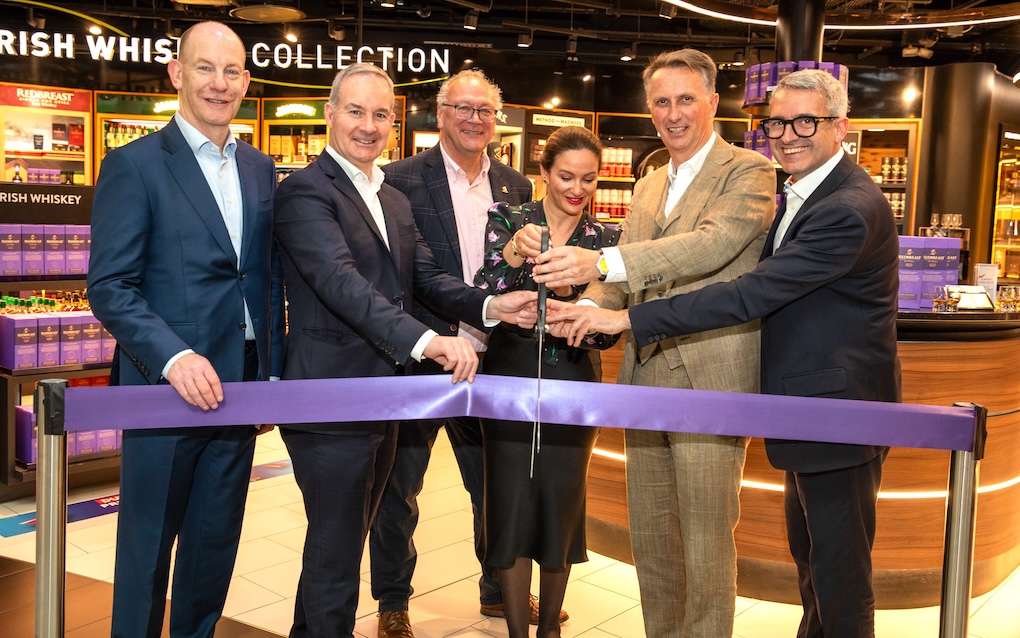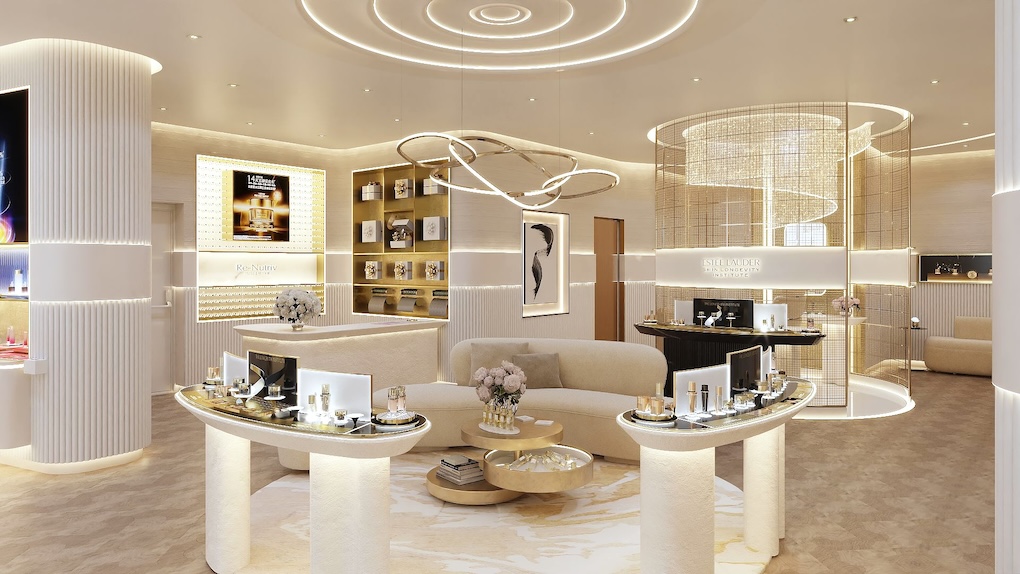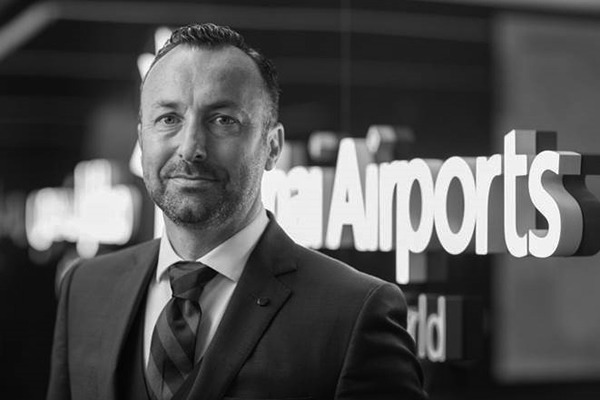
UAE. Dubai Airports has lauded the importance of a breakthrough three-way partnership it has struck with anchor retailer Dubai Duty Free and advertising concessionaire JCDecaux. In an interview with The Moodie Davitt Report (see below), Dubai Airports Executive Vice President Commercial Eugene Barry described the formula as a win for all stakeholders, airport, retailer and concessionaire but particularly for the consumer.
Earlier this week the parties announced what they dubbed a ‘Drive-to-Store, data-driven’ advertising platform at Dubai International, beginning 1 January 2018.
The partners claim (rightly -Ed) that this is the first such collaboration between an airport authority, advertising concessionaire and travel retailer.
JCDecaux Dicon (the advertising company’s Middle East business) currently manages advertising assets strategically located along the passenger journey at Dubai International. Under the new agreement, it will join forces with Dubai Duty Free to operate much of the retailer’s own existing digital real estate located in-store and around the terminals.
“I don’t know of another example where an airport authority and the retailer and the advertising concessionaire have joined forces in this way” – Eugene Barry
This “unprecedented” collaboration aims at building a new eco-system based on advertising, airport and travel retail data to deliver an optimised advertising scheduling system and boost campaign efficiency, the partners said.
Just after the deal was announced, Eugene Barry spoke to Martin Moodie about its significance.
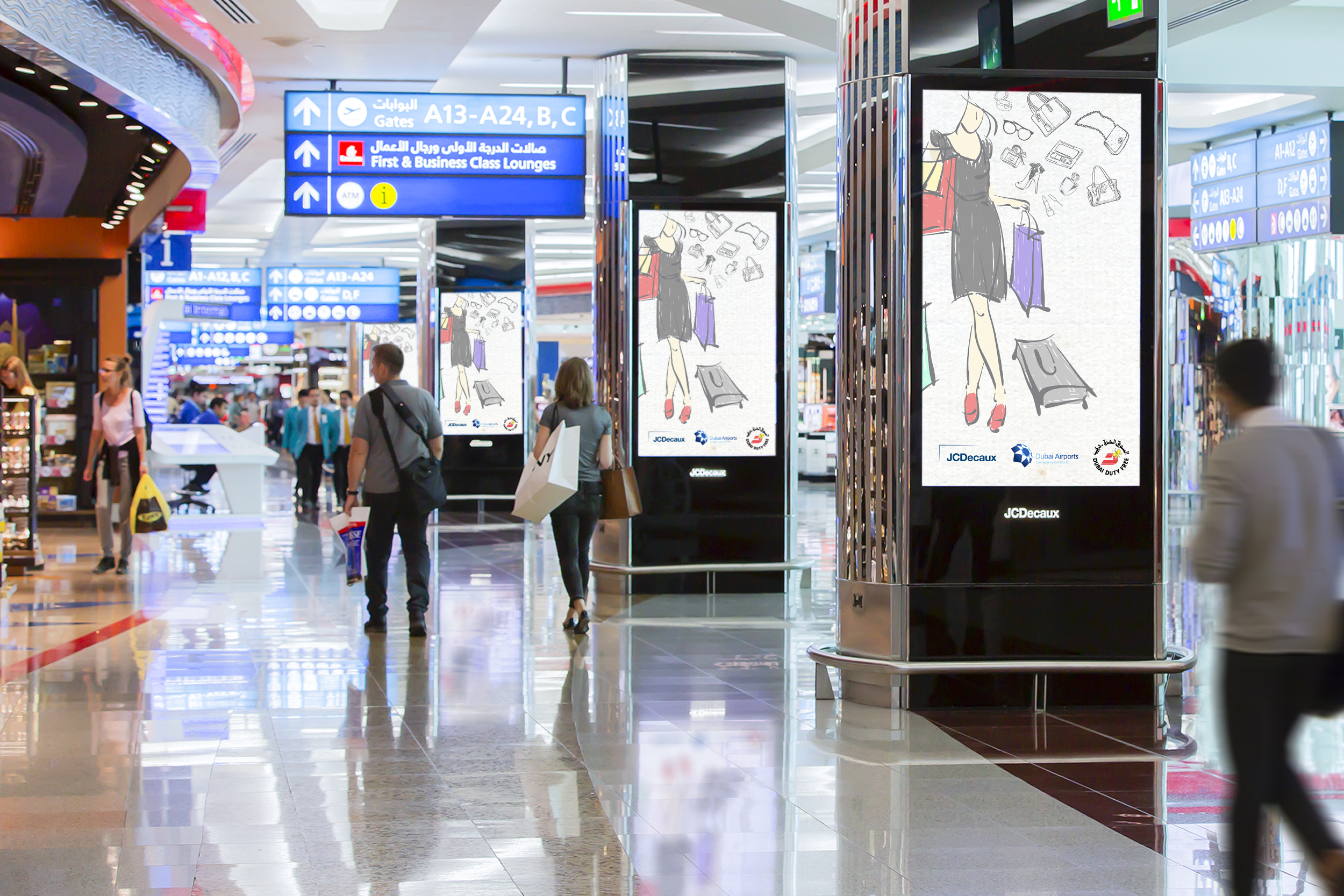

Martin Moodie: Eugene, the agreement was touted as a pioneering, breakthrough partnership. Tell us what it means to Dubai Airports.
Eugene Barry: To put it into context, Martin, there is a general challenge at airports in that there is retail activity and there is airport activity. The airport and the retailer usually reach a consensus on where the boundaries are, allowing the retailer to continue with their business and the airport to continue with theirs.
We’ve discovered that there is a great opportunity that we’re not optimising because of those boundaries that have existed. We haven’t been optimising the value that we’ve been able [individually] to create.
This year, we’ve been talking about how we can unify the opportunity, make it workable and meaningful for all three parties, as well as commercially compelling. The overriding objective was to create a unified airport/retailer/advertising concessionaire message to our brands, regardless of who they are, whether they’re a retail brand or any consumer brand – so that there is one opportunity at Dubai International Airport.
We wanted to create a platform which is digital for brands – travel retail brands predominantly. One that will really inform, influence and inspire the travelling public to act immediately and then to convert those passengers or viewers into consumers on the spot in the airport.
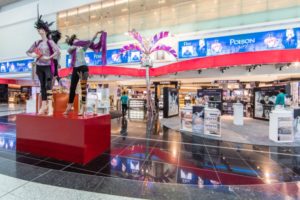
There’s also a wider advertising network outside of the retail areas or the common areas, which starts all the way back at the curb. We’ve worked with JCDecaux on that for the airport-wide concession and now that we’ve got this extension agreement, we can bring Dubai Duty Free into that conversation very early on.
It’s exciting because it really unifies what the airport can offer, and it creates clarity, I think, for brands. Now, to anyone who asks about our opportunities at the airport, we can all speak with one voice. So, we’ve created this Trinity, I guess, in the digital space with the overwhelming objective to drive footfall and to drive awareness.
It strikes me that this agreement comes at an important time for airport advertising, which faces challenges of a different type of consumer who looks down at their phones rather than up at signage. To embrace that challenge, I suspect you have to have more joined-up thinking.
It’s exactly that. Airport advertising is the same challenge as airport food, which people talk of as if it were some different kind of food that you’re not used to eating on a day-to-day basis! Airport advertising hid behind the barrier that it was airport-specific. Yes, of course, it’s travel-related and it’s very much global… but it’s still [targeting] the consumer. They just happen to be in the airport and on their way somewhere.
All of the normal global trends, behaviours, and expectations are still relevant at an airport. The only thing that’s different is that there’s a time factor involved and there are many pressures on the traveller for their attention.
“The consumer doesn’t see boundaries. They just see products or services or whatever it might be inside the airport. They don’t really care about who operates what.” – Eugene Barry
So, there’s a time and a travel relationship but we’re trying to remove the prefix of ‘airport’ from food, from retail, from advertising, from hospitality, from experience and normalise the journey across the airport through the experiences that people expect to see during that journey.
If people outside the airport environment are behaving in a certain way, paying their bills in a certain way, then they expect to see that more and more inside the airport and not see some different way of operating.
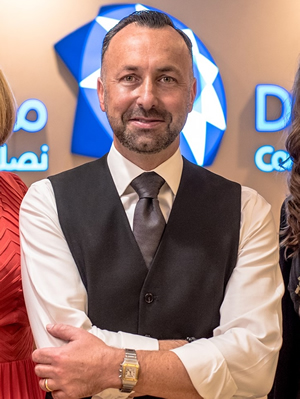
So that’s where it’s coming from. It’s about experience as much as anything else. By unifying the joint forces of Dubai Airport, JCDecaux and Dubai Duty Free, we’ve got the space and the resolve to create really compelling messages.
In speaking to brands, we can say instead of dividing your investment in different ways and compartmentalising it… how about looking at it as an airport opportunity? One that has multiple objectives and where you can do more in bigger spaces, perhaps, than you would have done in the past?
What about the model? I take it that JCDecaux as the concessionaire will do the selling, as it were, and promote the various platforms and they will pay a concession fee to a combination of you and Dubai Duty Free. Is that how it works?
That’s right. I’m not going to go into too many details here, but the concessionaire is JCDecaux, so it’s basically an extension of the agreement they had with Dubai Airports since 2008. Based on the expertise that they have globally – at some 230 airports around the world and something like 300 railway stations – they’re bringing their global expertise to play here. So, they will be the front end of this.
They will speak directly to the brands or entities that represent the brands at a global level… and Dubai Airports and Dubai Duty Free will benefit from them leading the charge.
So, effectively it removes the historic conflict between retailer and advertising concessionaire?
I think conflict is probably too harsh a word but there was a boundary there for sure, and there was some kind of demarcation between where the retailer begins and ends and where the airport begins and ends. But the consumer doesn’t see that. They don’t see boundaries. They just see products or services or whatever it might be inside the airport. They don’t really care about who operates what.
They just want to see and experience and touch and be informed. So, we all tried to remove that. I’ve worked in many airports and this is an issue in every single one. We’ve managed to remove that as an issue.
I don’t know of another example where an airport authority and the retailer and the advertising concessionaire have joined forces in this way.










